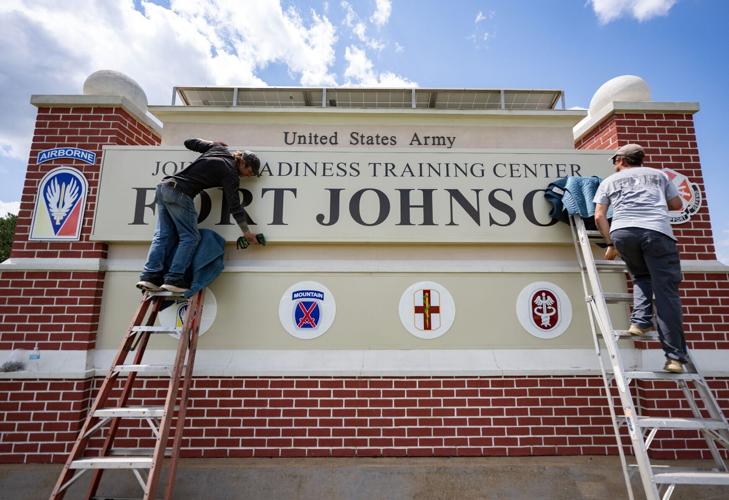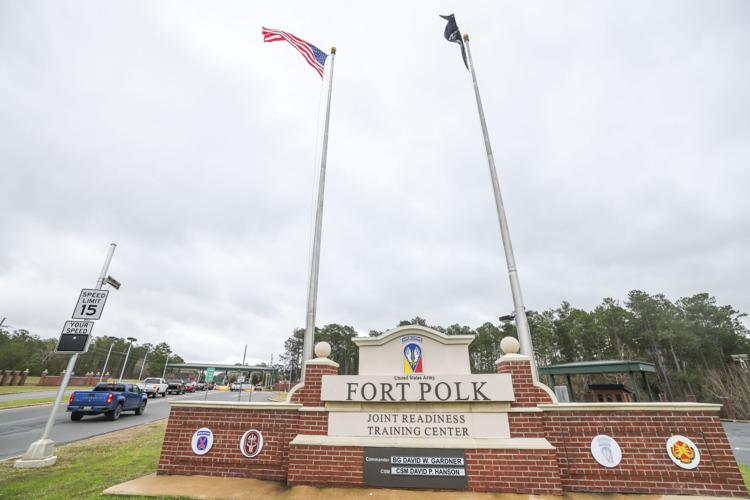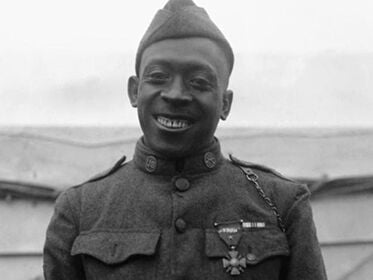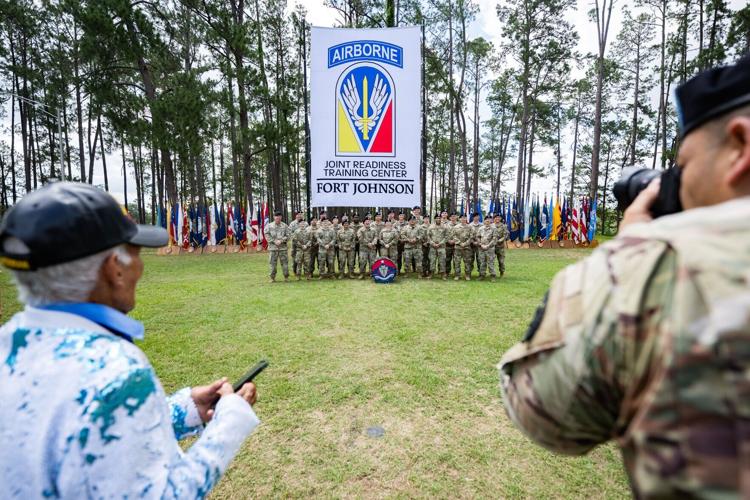FORT JOHNSON, La. -- With the clang of a hammer hitting a ceremonial anvil and the raising of a red, white, blue and yellow banner, Louisiana's largest military installation took on a new name that honors a Black Medal of Honor recipient rather than a Confederate general.
Fort Polk, which was founded and named in the early 1940s in Vernon Parish, is now officially Fort Johnson, named after Sgt. William Henry Johnson, who served in a unit that fought with French forces on the front lines of World War I.
The name change -- which was required after Congress approved the National Defense Authorization Act of 2021 -- is part of a broader Pentagon effort to remove the names of Confederates from military facilities. Fort Johnson is one of nine U.S. military bases spread across the South that have either had their name changed or will in the coming weeks.
Attendees at the 45-minute redesignation ceremony applauded the raising of the banner and the unveiling of the post's new flag. The new name properly honors an American hero, said Brig. Gen. David Gardner, Fort Johnson's commanding general.
Gardner praised Johnson for actions he took in the Argonne forest in 1918-1919, when He fended off a German raiding party, killing at least four, despite sustaining 21 wounds in the fight. His efforts were so renowned along the front that he became known as "Black Death," Gardner said.
Johnson's exploits earned him the French Croix de Guerre avec Palme, France's highest award for valor.
Johnson died in 1929. He was posthumously awarded the Purple Heart in 1996, the Distinguished Service Cross in 2002 and the Medal of Honor in 2015.
"Fort Johnson is now named after a soldier who fully embodied the warrior spirit," Gardner said. "We are honored to bear his name."

Sgt. William Henry Johnson
Tara Johnson, William Henry Johnson's granddaughter, said her grandfather was moved to serve by his love of country.
"It means that all of his efforts to prove that he was an American and he loved this country are coming to fruition," she said. "We are recognizing that he was an ordinary guy who did extraordinary things. Defeat was never in his vocabulary."
Not everyone favored the change, however. Many in the deeply conservative communities that surround the base did not want to see the fort renamed. Phillip Hunt, an at-large councilman and the Mayor Pro-Tem in the city of Leesville, said he would have liked the name to stay the same. But he acknowledged that is secondary to making sure the base doesn't close, as it did in the 1950s.
"We don't really care what the name is as long as they stay here," he said.
The installation, then known as Camp Polk, was founded in the run-up to World War II, when it was used as a center of a massive training exercise known as the Louisiana Maneuvers. It was later closed during the 50s, but reopened the following decade and became a permanent installation soon after.
It was named for Leonidas Polk, an Episcopal Bishop and Confederate General who was born in North Carolina.
In addition to Fort Polk, eight other Army bases across the South are slated to or have already been redesignated. Those include Fort Hood in Texas, Fort Bragg in North Carolina and Fort Benning in Georgia.
The Louisiana National Guard, which as a state entity was not technically subject to the NDAA that mandated the base name changes, nevertheless changed the name of its largest installation, in Pineville, to the National Guard Training Center Pineville. It had formerly been named for Confederate. Gen. P.G.T. Beauregard.
Fort Polk is a major economic driver in west Louisiana. It employs approximately 15,000 soldiers and thousands of contractors and civilians. State estimates have said it accounts for more than $770 million in annual payroll.







